-
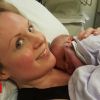 +16 +1
+16 +1'I thought I was losing my mind after miscarriage'
One in six women suffer post-traumatic stress for months after losing a baby, research suggests.
-
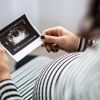 +18 +1
+18 +1Scientists to test antibiotic cure for recurring miscarriages in major new trial
Recurring miscarriages may be caused by an underlying infection, scientists believe, as they launched a major trial to find if the problem can be cured with a simple course of antibiotics. Around 14,000 couples each year in England and Wales experience two or more consecutive miscarriages, yet the reason has proved elusive.
-
 +14 +1
+14 +1What Happens to Babies Born on Planes
When contractions begin at 39,000 feet...
-
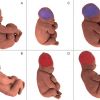 +11 +1
+11 +1New Study Shows How Much a Vaginal Birth Really Distorts a Baby's Body
Pregnancy, labour and delivery are incredibly physically demanding for women. But birth is no walk in the park for the baby either.
-
 +5 +1
+5 +1U.S. Births Fall to Lowest Level Since 1980s
The number of babies born in the U.S. last year fell to a 32-year low, deepening a fertility slump that is reshaping America’s future workforce. About 3.79 million babies were born in the U.S. in 2018, according to provisional data from the Centers for Disease Control and Prevention’s National Center for Health Statistics.
-
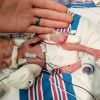 +13 +1
+13 +1See how this 'fiesty' micropreemie looks after 9 months in a hospital
When Jaimie Florio was 19 weeks pregnant, doctors discovered that her baby was tinier than normal. It was like he was 17 weeks not 19. They ran tests to try to understand why, but the results provided no answers. And baby Connor’s development seemed as if it almost stopped. “His growth was really slowing. They kept telling me he needed to be 500 grams — which is about a pound — to be viable,” Florio, 29 of Danbury, Connecticut told TODAY. “He was nowhere near there. I knew we needed a really good neonatal intensive care unit (NICU).”
-
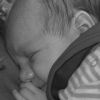 +2 +1
+2 +1Stillbirth threefold increase when sleeping on back in pregnancy
RESEARCH spearheaded by a University of Huddersfield lecturer has shown that pregnant women can lower the risk of stillbirth by sleeping on their side and NOT on their back. Now the finding forms part of official NHS guidance designed to bring about reductions in the number of babies who are stillborn in the UK – amounting to nine a day, or one in every 225 births.
-
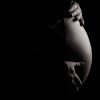 +17 +1
+17 +1Maternal Diet During Pregnancy May Modulate the Risk of ADHD Symptoms in Children
The results of a study led by a team from the Barcelona Institute for Global Health (ISGlobal) , a centre supported by ”la Caixa”, suggest that the risk of a child developing symptoms of attention deficit hyperactivity disorder (ADHD) may be modulated by the mother’s diet during pregnancy. The study, published in The Journal of Pediatrics, analysed samples of umbilical cord plasma to quantify the levels of omega-6 and omega-3 that reach the foetus . The statistical analysis showed a higher omega-6:omega-3 ratio to be associated with a higher risk of ADHD symptoms at seven years of age.
-
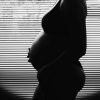 +15 +1
+15 +1Major Study Finds Pregnancy Issue Actually Linked to Autism, And It's Not Vaccines
It's a common but erroneous belief among anti-vaxxers that if a pregnant woman gets jabbed, she puts her unborn child at risk of autism.
-
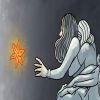 +12 +1
+12 +1The Might-Have-Been
"The day I found out I was pregnant, I installed an app on my phone that guesstimated — in exclusively fruit and vegetable comparisons — the size of my might-be child. My pregnancy made it from the size of a sweet pea to the size of a blueberry, and during that time I kept a wire-bound journal with “Sweet Pea” written on the cover." By Kristen.
-
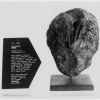 +24 +1
+24 +1A Fetus Can Turn to Stone in Its Mother's Body and Go Undiscovered for Decades
"Stone babies"—or lithopedions—are incredibly rare.
-
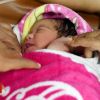 +3 +1
+3 +1Surge in global C-sections 'alarming'
Doctors' use of Caesarean section to deliver babies has nearly doubled in 15 years to reach "alarming" proportions in some countries, a study says. Rates surged from about 16 million births (12%) in 2000 to an estimated 29.7 million (21%) in 2015, the report in the medical journal The Lancet said. The nation with the highest rate for using the surgery to assist childbirth is the Dominican Republic with 58.1%.
-
 +16 +1
+16 +1Is Fish the Food of Love, and Babies?
Trying to have a baby? Eating fish might help. Researchers interviewed 501 couples who were trying to get pregnant without medical assistance. All kept diaries on their diet and other health and behavioral habits, including fish consumption and frequency of sexual intercourse. They followed the pairs for a year or until pregnancy.
-
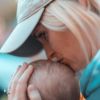 +9 +1
+9 +1Self-Blame, Rumination, and the Trauma of Birth
Birth is miraculous, but not always simple. For some, the difficulties of birth last long after the baby is born. Looking at almost 200 first-time moms, new research published in the Journal of Maternal-fetal and Neonatal Medicine (link is external) found that many of them experienced symptoms of post-traumatic stress disorder (PTSD)...
-
 +42 +1
+42 +1An 81-year-old man has 'retired' after 1,173 blood donations that saved 2.4 million babies — here's why his blood is so special
James Harrison, 81, made his 1,173rd and final blood donation on Friday — the end of a 60-year donation streak that has saved the lives of 2.4 million babies, the Sydney Morning Herald reported. He's known, unsurprisingly, as "the man with the golden arm." "It's a sad day for me," he told the Herald. "The end of a long run."
-
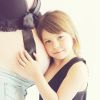 +2 +1
+2 +1Tips for Pregnant and Working Moms
There should be no more gulping a sad lunch at your desk. You will have to eat healthy food at all times and make sure at you eat three full meals to five medium-sized meals every day. Yes, it would be hard to prepare in the morning.
-
 +20 +1
+20 +1Japanese couple apologise for ignoring work pregnancy timetable by conceiving ‘before their turn’
A Japanese worker has been reprimanded by her boss for “selfishly breaking the rules” after she became pregnant before it was her “turn”, according to media reports. The woman was working at a private childcare centre in Aichi prefecture, north Japan, when she found out she was pregnant.
-
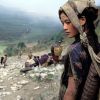 +2 +1
+2 +1Hundreds of pregnant women in Nepal trek for days to see ultrasound photos
Expectant mothers in Nepal are trekking for days in rough conditions to glimpse their unborn children at Australian-run ultrasound clinics. Humanitarian organisation Australians for Women's Health, which is building a hospital for women and babies in the country's east, has also run ultrasound clinics around Nepal. Founder Ray Hodgson, an obstetrician from the New South Wales mid-north coast, said his team was amazed when hundreds of women started arriving at a clinic north-west of Pokhara.
-
 +7 +1
+7 +1How Was Your Day?
Suitable Films
-
 +20 +1
+20 +1New Zealand's Prime Minister Jacinda Ardern Is Pregnant
The world's youngest female head of government is expecting her first child
Submit a link
Start a discussion




















